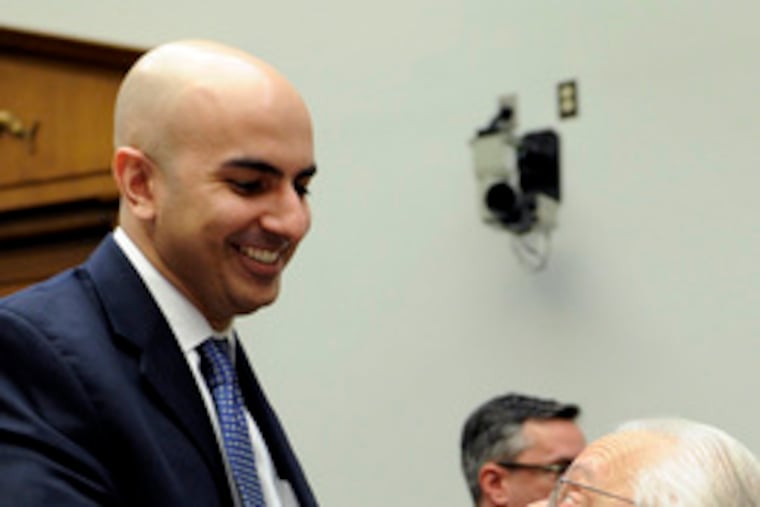Oversight report criticizes bailout
WASHINGTON - A congressional panel reviewing the government's $700 billion rescue of the financial sector questioned how the money was being spent and whether it was helping homeowners avoid foreclosure.

WASHINGTON - A congressional panel reviewing the government's $700 billion rescue of the financial sector questioned how the money was being spent and whether it was helping homeowners avoid foreclosure.
In a report made public yesterday, the Congressional Oversight Panel for Economic Stabilization questioned whether the Treasury Department's shifting remedies constituted a strategic response to the crisis.
It was the latest critical assessment of the Troubled Asset Relief Program, the massive federal intervention into the nation's financial system.
The public needs to know more about what Treasury believes is behind the economy's problems and how it is trying to fix them, the report said.
The report comes as Democrats, including President-elect Barack Obama, insist that instead of simply injecting money into banks, the government must use the funds to halt rising foreclosures. Federal Reserve Chairman Ben S. Bernanke has predicted that foreclosures this year would reach about 2.25 million.
"In the macroeconomic sense, foreclosure reduction is an essential part of getting us out of the problem we're in," House Financial Services Committee Chairman Barney Frank (D., Mass.) said yesterday. "The refusal so far to use the money to that purpose has been, I think, a violation of the intent and undermines the ability to get the votes in this Congress to do things in the future."
Frank made his comment as he opened a hearing on the bailout.
The oversight report offers no specific conclusions, but the questions suggest sharp disagreements with Treasury Secretary Henry M. Paulson Jr.'s stewardship of the program and echo some of the criticism raised in a Government Accountability Office audit of the program last week.
Gene Dodaro, acting comptroller general of the United States, told lawmakers yesterday that the GAO concluded that the government must toughen its monitoring of the bailout fund to ensure that banking institutions limit their top executives' pay and comply with other restrictions. The auditors said the Treasury Department had no mechanism in place to track how institutions were using taxpayer money that the government injected into the banking system.
The tough reviews also come as the Bush administration is considering whether to seek access to the second half of the $700 billion fund. All but $15 billion of the first $350 billion has been allocated in the two months the program has been in place.
Neel Kashkari, director of the Treasury office that oversees the bailout program, told lawmakers at the hearing that Paulson has made no determination about whether to request tapping the remaining money. He said the Treasury Department was keeping Obama's economic team abreast of developments.
Kashkari defended the work of the program in the face of tough questions from lawmakers.
"The system is fundamentally more stable than it was when Congress passed the legislation," he said. Pressed by Rep. Maxine Waters (D., Calif.) to put more resources into reducing foreclosures, he said: "Imagine how many foreclosures we would have if we had allowed the financial system to collapse."